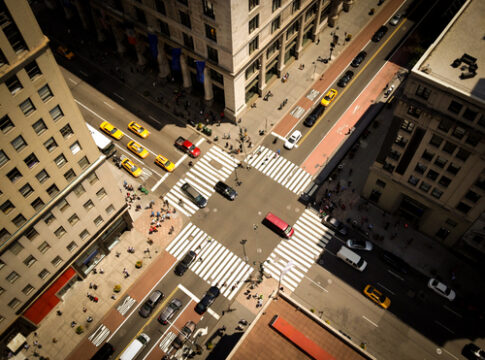New York faces a pivotal moment as Democratic Socialist Zohran Mamdani emerges as the frontrunner in the city’s mayoral race, triggering intense debate about the future of America’s financial capital. His progressive platform, which includes raising the minimum wage to $30 per hour, implementing rent controls, and increasing taxes on corporations and wealthy residents, has drawn sharp criticism from business leaders and economists concerned about the city’s economic stability. Could we see billionaires like Bill Ackman decide to take their business elsewhere?
Socialist Policies Alarm Business Community
Zohran Mamdani, a member of the Democratic Socialists of America and Working Families Party, has declared victory in New York City’s Democratic mayoral primary, sending shockwaves through the business community. His platform includes dramatic economic reforms that critics argue could fundamentally alter New York’s position as a global financial hub.
Billionaire investor Bill Ackman has emerged as one of Mamdani’s most vocal critics, stating bluntly: “His policies would be disastrous for NYC. Socialism has no place in the economic capital of our country.” This sentiment reflects growing concern among business leaders about the future of a city that generated $1.2 trillion in GDP in 2022, representing over 4.6% of the total U.S. economy.
Zohran Mamdani’s plan to tax people based on skin color isn’t just wrong, it’s racism pure and simple. We’ve got a mayor who calls white people “crackers” and now a socialist pushing race based property taxes.
I’ll fix the system the right way: fair, transparent and smart.
No… pic.twitter.com/lQl9n4fwky
— Curtis Sliwa (@CurtisSliwa) June 28, 2025
Controversial Economic Proposals
At the center of Mamdani’s economic platform is a proposal to raise the minimum wage to $30 per hour by 2030, with automatic increases tied to the cost of living. This represents a dramatic increase that business advocates warn could force small businesses to close and drive larger corporations to relocate operations outside the city.
Mamdani’s tax proposals are equally ambitious, calling for raising the corporate tax rate to 11.5% and implementing a 2% flat tax on households earning over $1 million annually. His campaign describes this approach as an effort to “shift the tax burden from overtaxed homeowners in the outer boroughs to more expensive homes in richer and whiter neighborhoods,” language that critics have characterized as divisive and potentially harmful to the city’s tax base.
Zohran Mamdani: "We will slowly buy up the housing on the private market and convert properties into communes" pic.twitter.com/u7RQxaERYt
— End Wokeness (@EndWokeness) July 1, 2025
Housing and Social Programs Spark Debate
Housing affordability stands at the center of Mamdani’s platform, with promises to build 200,000 new affordable, union-built, rent-stabilized homes over the next decade. He has also pledged to freeze rents for stabilized tenants, policies that housing economists warn could worsen housing shortages by discouraging new development.
The candidate’s social programs include implementing free childcare for every New Yorker aged 6 weeks to 5 years and providing “baby baskets” to new parents. Perhaps most controversial is his proposal to create city-owned grocery stores, which he argues would offer lower prices by redirecting funds from corporate grocery chains – a plan critics view as government overreach into private enterprise.
Ackman warns that these policies threaten the very foundation of New York’s ability to provide social services: “The ability for NYC to offer services for the poor and needy, let alone the average New Yorker, is entirely dependent on NYC being a business-friendly environment and a place where wealthy residents are willing to spend 183 days and assume the associated tax burden.” Should high-income residents and businesses flee, the tax base required to fund Mamdani’s ambitious social programs could quickly erode.

